The best digital piano for students
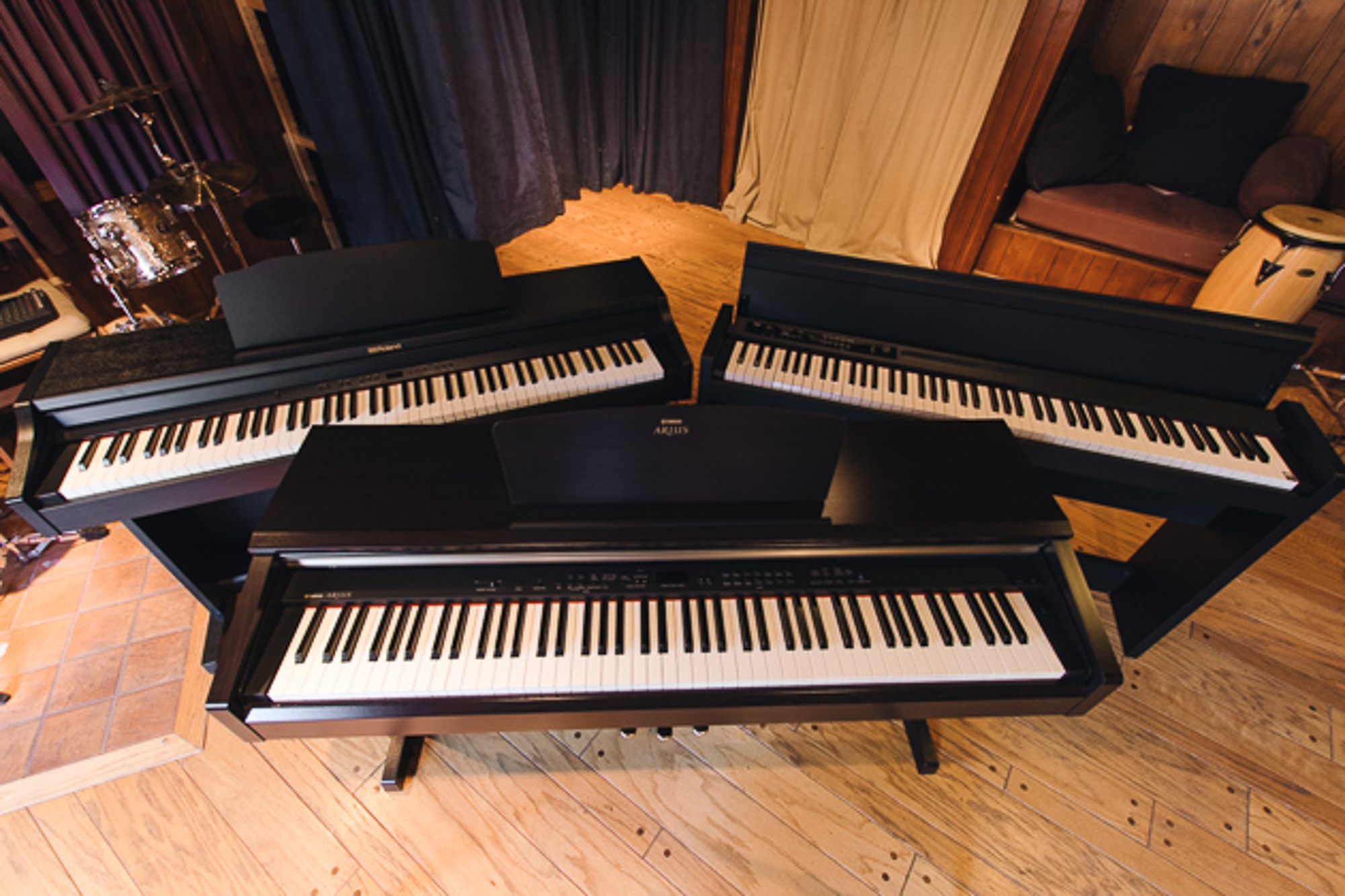

By John Higgins
This post was done in partnership with Wirecutter, reviews for the real world. When readers choose to buy Wirecutter's independently chosen editorial picks, it may earn affiliate commissions that support its work. Read the full article here.
After researching more than 80 digital console pianos and testing nine with a panel of professionals and amateurs, we think the Yamaha Arius YDP-181 is the best digital console piano for a student who doesn't want an acoustic piano because of space or budget considerations. Its action has a good feel, the piano sounds are excellent, the control panel is well laid out and easy to navigate, and the piano comes with a bench. It's an excellent choice for a beginning or intermediate student and should ease the transition to an acoustic instrument as they progress.
Who this is for
If someone in the household is showing an interest in the piano and wants to begin taking lessons, a digital piano is a great option. Unlike acoustic pianos, digital pianos don't require tuning or maintenance, and can be used at low volumes or with headphones. They also tend to be smaller and less expensive than acoustic pianos.
How we picked and tested
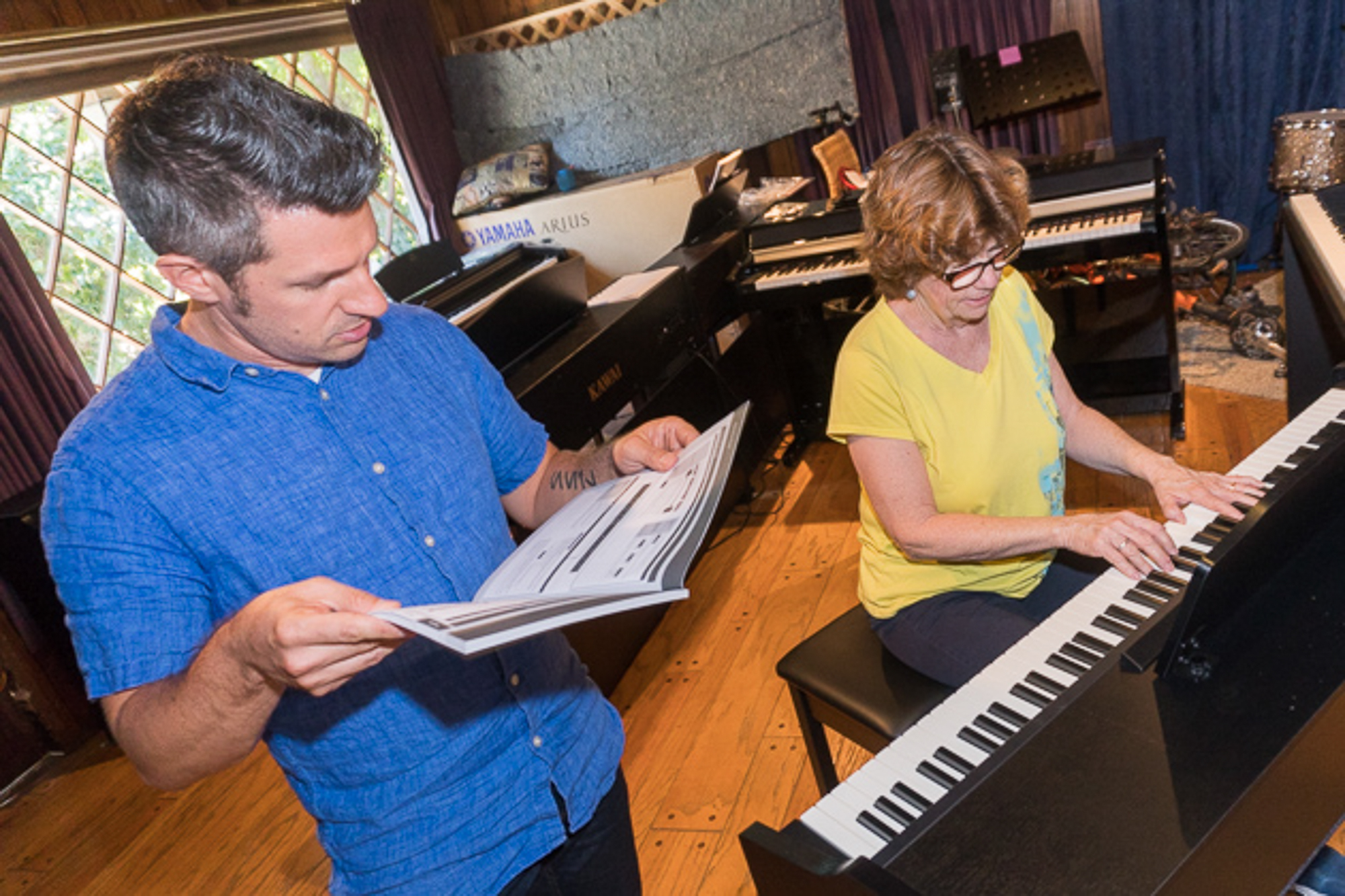
In order to find the digital piano that best emulated a traditional piano playing experience, we looked for the following features:
- 88 keys and three pedals, to match a standard acoustic piano.
- Weighted action, to simulate the feel and responsiveness of depressing a key on an acoustic piano.
- An accurate piano sound. Having additional sounds—such as electric piano, strings, or brass—was an added bonus.
- Built-in speakers and a headphone jack.
- An attached stand to keep the keyboard solid and secure.
- Price limit of $2,000.
We started by searching the Internet and reading editorial reviews of digital pianos, and looked into 89 models. After applying the above criteria and sampling a few pianos in a music store, we narrowed our list to nine pianos. We then ordered each piano, assembled it, and brought in a group of amateur and experienced players to test each model.
Our pick: Yamaha Arius YDP-181
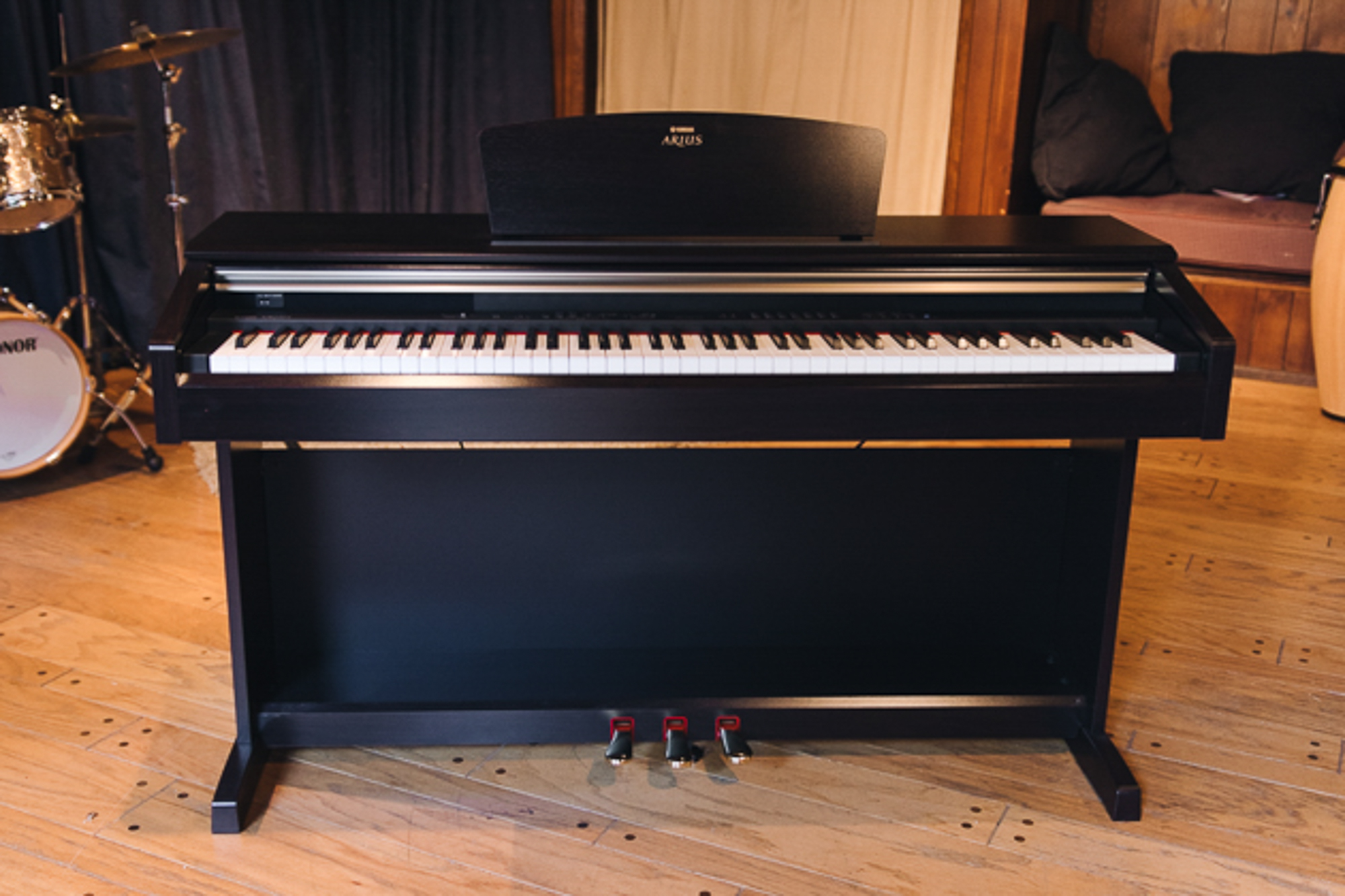
Of all the pianos we tested, the Yamaha Arius YDP-181 felt most like an acoustic piano. The keyboard action is firm and responsive, and the pedals have nice sensitivity. The default Grand Piano 1 sound is good with a sparkly high end; and the panel controls are clearly marked and easy to navigate. The speakers don't envelop you in sound as much as those of some other pianos we tested, and it comes in only a dark rosewood finish, but it's the one piano I constantly go back to and would enjoy playing all day.
The YDP-181 has Yamaha's Graded Hammer action, one of the company's midrange quality actions, which emulates an acoustic grand piano by giving lower-range keys a heavier touch than higher-range. Our test's panelists thought the action felt good, though the amateur player found the action to be too quick. But overall, it was the easiest for controlling chord voicing—manipulating the relative volumes of notes within chords—of any piano we tested. The pedal sensitivity is impressive as well, and even allows for half pedaling.
Runner-up: Roland RP501R
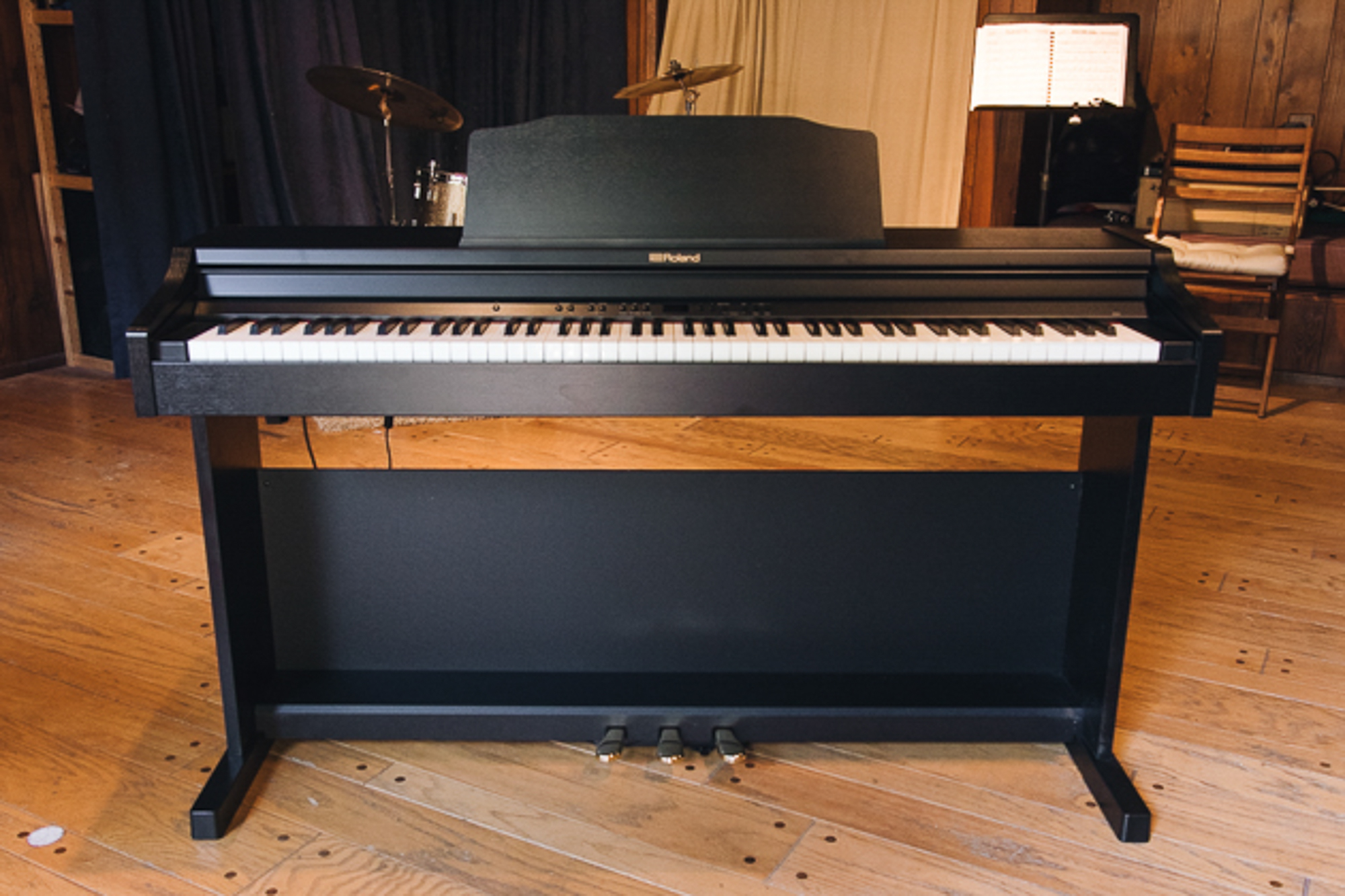
The Roland RP501R is another great choice for a developing musician. The action is pretty good, and the damper pedal has Progressive Damper Action, Roland's name for its half pedaling response that is similar to the Yamaha's. The piano sound was decent, but not as realistic as the Yamaha's. The Roland comes with 300 sounds and 72 rhythmic accompaniments. It's available in black, rosewood, and white, and comes with a matching bench.
The RP501R also has the ability to connect a music score display app on a smart device via Bluetooth, so that you can assign one of the keyboard pedals to turn the page. It also has an internal interface that lets you connect the Roland directly to your computer.
The action on the RP501R has a somewhat firm feel that is satisfying and easy to play. One of our testers found it so comfortable that she said she would play on it every day, but another didn't like the slight vibration she felt when she pressed the key into the keybed.
Budget pick: Korg LP-380
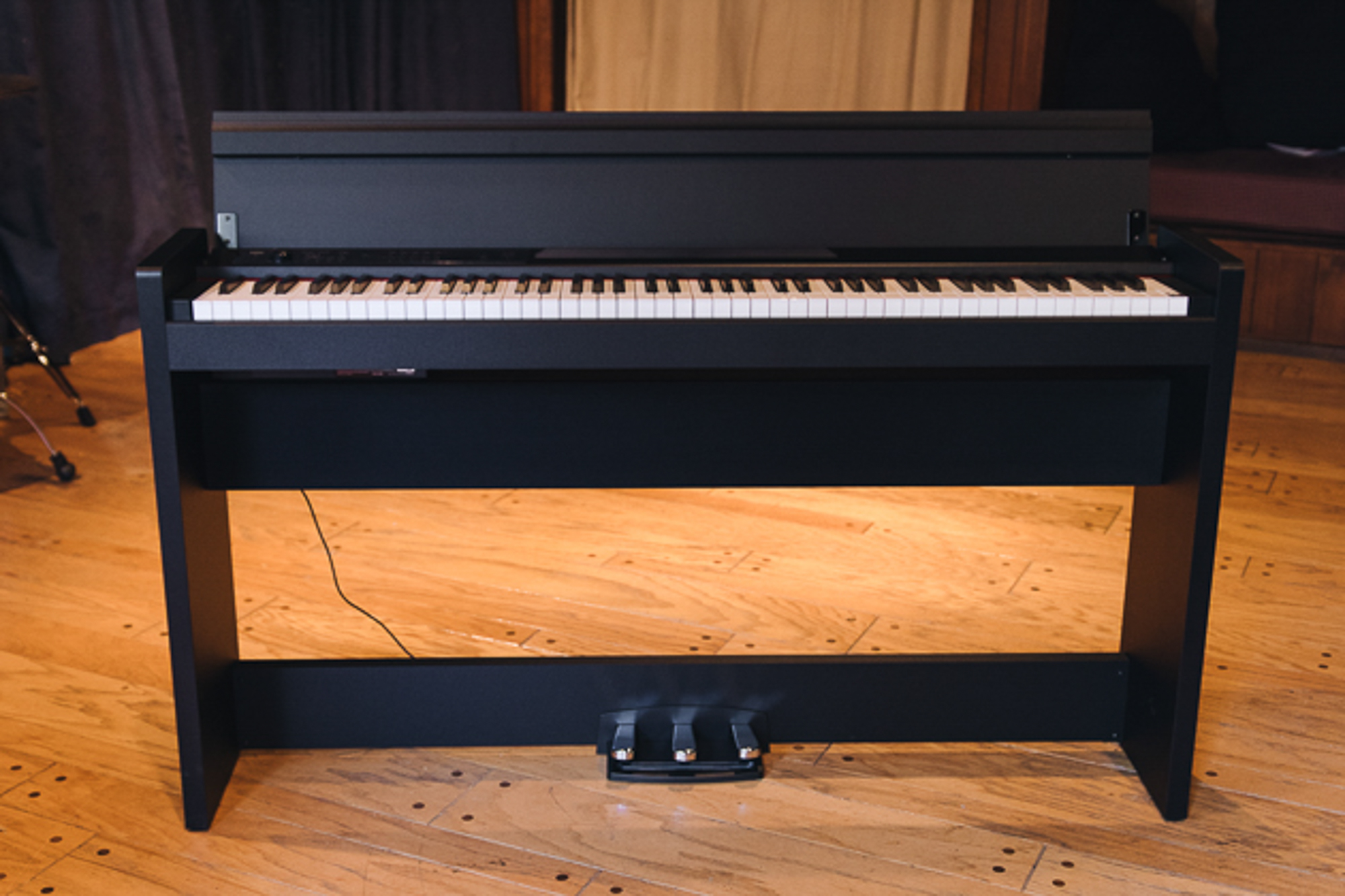
For around $700 cheaper than our Yamaha pick, the Korg LP-380 is a decent starter piano. For a more experienced player, it isn't as good a choice as the Yamaha or the Roland due to its limitations in action and sound. It is easier to fit into a small space, however, because at 13.82 inches, it is not as physically deep as the Yamaha or the Roland.
The LP-380 comes with 30 internal sounds. Our testers thought the default piano sound and a few of the electric keyboard sounds were very good. However, its action is spongier than that of our other picks, and a bit harder to control. The Korg LP-380 is available in black, white, red, a rosewood grain finish, or black with red side panels and a red cover.
The biggest flaw of the Korg is the design of its cover. In the open position, the cover becomes the music desk, but it doesn't lean back quite far enough. This limits your ability to illuminate your music from above, and one of our testers found it was uncomfortable to use.
This guide may have been updated by Wirecutter. To see the current recommendation, please go here.
Note from Wirecutter: When readers choose to buy our independently chosen editorial picks, we may earn affiliate commissions that support our work.
via Engadget RSS Feed "http://ift.tt/2mPD8EQ"
Comments
Post a Comment